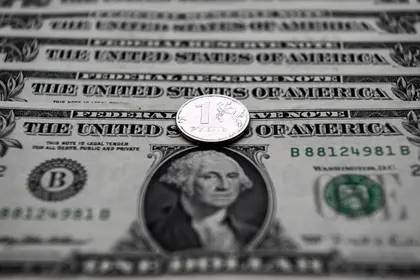Reports began surfacing in some media on Friday that the G7 is now considering exchanging frozen Russian assets for occupied Ukrainian territories, where Moscow can get their frozen assets back by giving up Ukrainian territories.
Among the channels that published the claim was “Ukraine 24/7 – news,” which did so on its Telegram channel and referenced an article by the Financial Times (FT) titled “The clash over whether to commandeer Russia’s frozen assets.”
JOIN US ON TELEGRAM
Follow our coverage of the war on the @Kyivpost_official.

However, while the FT article does cite a German official posing the question as a future hypothetical, the official does not state that the G7 is actively pursuing the strategy.
Here’s the comment referenced in the FT article, which was the only reference to occupied Ukrainian territories throughout the article:

The comment was made in reference to one of Washington’s proposals on utilizing frozen Russian assets, where the West would release “about $50 billion of funding for Ukraine” by issuing a loan or bond secured against future profits.

Romanian Pro-EU Parties Strike Coalition Government Pact
While Washington’s proposal would provide short-term relief to Kyiv, it cannot account for circumstances that would arise when the war ends in the near future, the unnamed German official says.
That said, the plan is just one of the many options the West is considering. While most Western countries have agreed to utilize frozen Russian assets to aid Ukraine, the challenges now lie in choosing the appropriate mechanism due to the legal complexities – outright confiscation is currently off the table for Europe but not the US, but the alternatives might also lead to dilemmas for the West.
Europe’s alternatives
At present, Europe is set to vote in the coming weeks on utilizing the €3 billion per year profit generated from frozen Russian assets – not the assets themselves – to collectively purchase weapons for Ukraine.
This would likely circumvent the legal complexity of confiscating foreign assets, of which many Western countries are reluctant since it would set a precedence for other countries to potentially follow suit, confiscating Western assets based on reparation claims from past conflicts.
However, the plan would likely require approval from all 27 member states, which can face opposition from states with a friendlier stance towards the Kremlin.
Washington’s stance
Washington took a more aggressive stance on frozen Russian assets and called for their outright confiscation, arguing previously that there is a legal basis for the move.
While it is not clear how Washington might proceed, the recent foreign aid bill signed by US President Joe Biden has granted Washington the right to confiscate Russian assets, which could happen in the coming months.
However, Washington currently possesses only $5 billion of frozen Russian state assets as opposed to more than €190 billion in Europe, which would likely lead to less severe ramifications.
“They have little skin in the game,” a European diplomat told FT.
You can also highlight the text and press Ctrl + Enter






